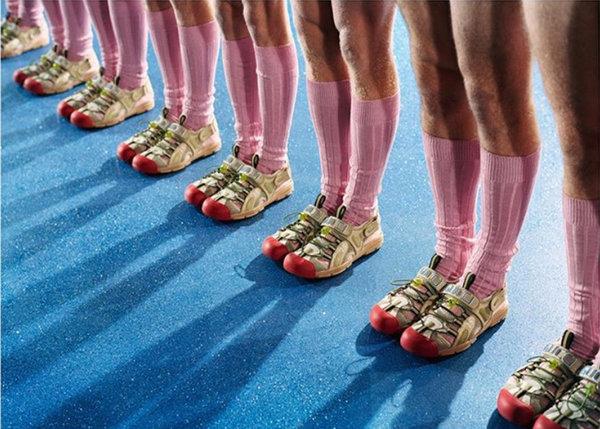Almost two decades ago, before he left the brand that bears his name, Calvin Klein (the man) appeared on “Larry King Live” and discussed, among other topics, the prevalence of copying in fashion.
“Oh, I think that’s flattering if we are,” he said. “It’s when they stop copying, that’s when we’re really in trouble.”
It’s hard to imagine a brand these days having the same response. Call-out culture has become one of the defining parts of our online life, whether it’s identifying mass market brands producing clothes that look suspiciously similar to high-fashion runway looks, or high- fashion brands making clothes that seem closely akin to others. The result is a toxic and unregulated situation in which accusations fly fast and furious, often coming with little or no real consideration or attempt to wrestle with what original design really means.
Indeed, the angry crying of “copy” has become so ubiquitous that it is almost startling when a brand chooses to use a different approach in the court of public opinion.
Yet that’s exactly what happened earlier this month when Gucci, the Italian global powerhouse, and Keen, the outdoor gear company from Portland, Ore., found themselves in a now familiar we-made/they-made situation. And that makes it worthy of … well, its own call-out.
Here’s what happened: Gucci released #GucciShowtime campaign highlighting its spring collection. The inspiration was 1940s Hollywood musicals, and one image had a showgirl lineup of legs in knee socks — and all wearing a shoe that the caption described as “a new sneaker-sandal hybrid design with Velcro straps and elastic laces.”

The Gucci photo, showing what it called “a new sneaker-sandal hybrid design with Velcro straps and elastic laces.”
The problem was that the shoe looked very similar to an old sneaker-sandal hybrid created by Keen in 2003 — the Newport sandal with its “toe bumper” — which has become staple footwear for the outdoor community.
The Gucci version isn’t exactly the same — the color of its toe cap contrasts with that of the shoe itself, and the Velcro strap has a large logo across the top — but it was close enough, and the original Keen distinctive enough, that many who saw the image could not avoid the comparison.
Fans were quick to comment, as one did, “I think y’all forgot to credit Keen for their design …,” and to appeal to the internet watchdog Diet Prada, which has made its name from identifying and publicizing what it sees as suspicious “homages.” But Keen had a somewhat different, arguably more Klein-like, response.
“When we first saw that, I personally felt a bit of amazement to see how the outdoors is taking hold from a style perspective,” said Erik Burbank, the Keen general manager for outdoor, lifestyle and kids. “Playful is part of our persona and our brand, and part of that is the desire to share in the fun and joy of the outdoors with as many people as possible. When we see big brands, especially sophisticated fashion brands, trying to capture some of that, we think it’s pretty cool. And then we were humbled and kind of flattered.”
So Keen decided to address the similarity with a sardonic meta-wink: It gathered a group of employees (and one black dog called Ridley) and created its own version of the Gucci shot, with the message “Dear @Gucci. We’re inspired by your inspiration from our inspiration. XOXO KEEN Team.”
Gucci did not respond to the post and declined to comment.
Of course, it probably is true that whoever would be drawn to the Gucci shoe, which costs $890 and has care guidelines that include “Fill shoe with tissue paper to help maintain the shape and absorb humidity, then store in the provided flannel bag and box,” would not be drawn to the Keen shoe, which costs $100 and has care guidelines that include advice on machine washing.
And Gucci may not have been aware that the closed-toe rubberized lace-up sandal is not as generic a shoe as, say, a sneaker. In the outdoors world there are Keens and Chacos and Tevas, and each has its own specific look and partisans and is recognizable by sight (and, sometimes, foot tan). Or that, as Susan Scafidi, academic director of the Fashion Law Institute, pointed out, Keen has numerous patents on its sandal style, beginning in 2002 with a patent for “sandal with toe guard.”
But it is also true that there is a trend toward fashion brands playing in the outdoors/comfort footwear field via overt cross-sector collaboration: see Balenciaga and Christopher Kane with Crocs, and Anna Sui and Teva.
Diet Prada said the Keen “clapback” at Gucci seemed to be “a calculated resolution that made them happy,” which is why the site had not posted about the two styles. It is possible, however, that the Keen reaction was something more. That in demonstrating a way to stake out style territory with a laugh and in a civil fashion, the company may also be a new model for what is starting to seem like an old, and increasingly acrimonious, debate.







